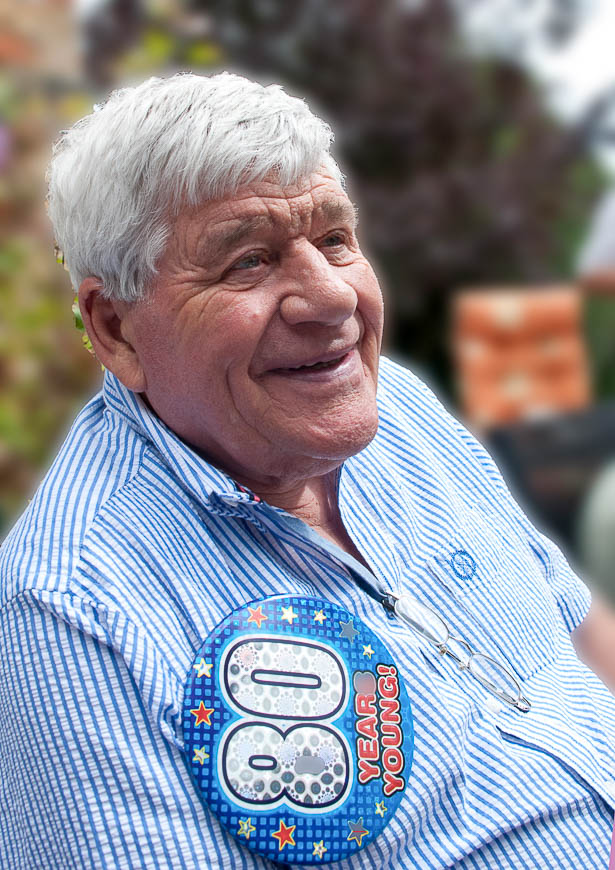
The Skol Six Day 1980, Wembley, London and I’m down to watch those brilliant late night chases, along with Sandy Gilchrist, Phil Griffiths and Stuart Sutherland.
We’re staying with a larger than life Londoner called Johnny Morris.
Griffiths has the patter and the cheek but he he’s no match for Johnny – a tousle-haired bear of a man who sells loft conversions and who’s greeted as a king when we appear at the Indian restaurant each night, en route back from the Six; with his Jag parked outside at a jaunty angle on the double yellow lines on the corner, just beside the traffic lights.
Needless to say, he didn’t get a ticket.
Johnny knows everyone, road, track, time trial and ‘cross – which is his first love.
He’s still well loved and respected as a man who took young riders – road and ‘cross – to Belgium and France to get their first sample of what cycle sport is really about.
Here at VeloVeritas we thought 35 years was long enough to wait for another chat with Mr. Morris…
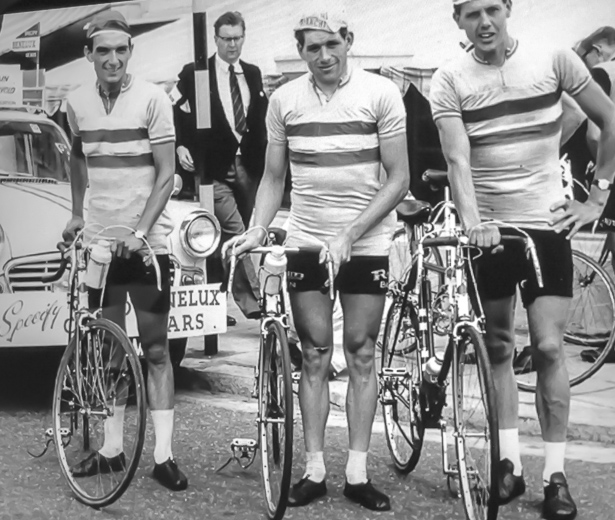
Did you used to race yourself, Johnny?
“Of course!
“In the 50’s and 60’s with the Claud Butler – with whom I rode the Tour of Britain in 1955 – Wally Green, Don Farrell and Fred Dean teams as an independent rider; semi-pro.
“I rode the Tour of Belgium – one stage was 165 miles in the rain and we had no back up; we started with our pockets stuffed with food; the Belgian guys just had a few bananas – and some little foil wrappers…
“The biological passport system has made a huge difference; if that wasn’t in place we’d never have won the Tour and Worlds – the doping was crazy.”
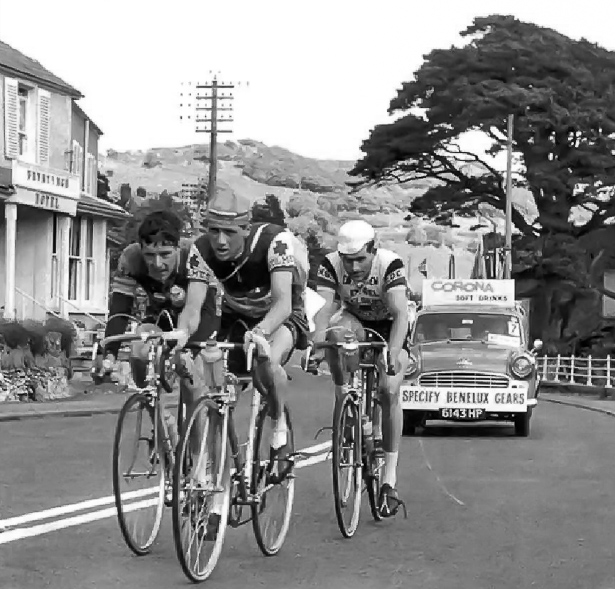
So you’re a fan of Cav, Froome and Wiggo?
“Incredible athletes; especially Wiggins – the Tour, pursuits, team pursuits, time trial, the hour.
“He’s a nice lad too – a nut-case, but an incredible talent.
“Brailsford obviously saw the potential in Froome – but power to weight is vital.
“If you think about it if they handicap a race horse by one pound, it make a difference – you’re not gonna win the Tour if you look like a pork pie like some of ’em used to. Mind you, the EPO helped – a 10% percent boost when most riders would settle for a half of one percent!”
How did you build your amazing list of contacts on the continent?
“Originally through going abroad as National Cyclo-Cross Team Manager, you meet people beside the road, you talk to them and…”
Why the affinity with Cycle-Cross?
“I used to ride them – I was once London Veterans Cyclo-Cross Champion.
“I got involved the British Cyclo-Cross Association and moved into taking care of the international team.”
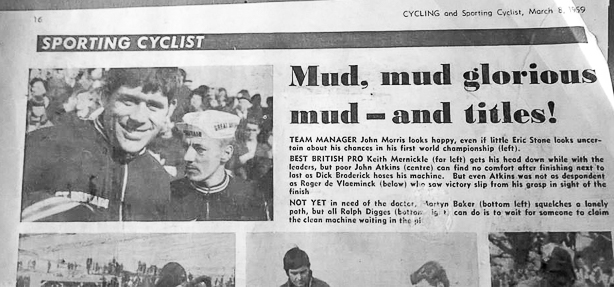
Do you remember your first continental adventure?
“It was to the GP Charlevile Mezieres ‘cross after the Nationals in Leeds in the early 70’s.
“I took Keith Mernickle and actually rode myself.
“As a result of that we got invites to other races and I took the likes of Phil Corley, Alan Williams and Spider Westwood over to race on the road.
“I made contacts in Metz and introduced Jim Davidson, Bill Nickson and Sean Kelly to VC Metz.
“Kelly won 18 races for them…”
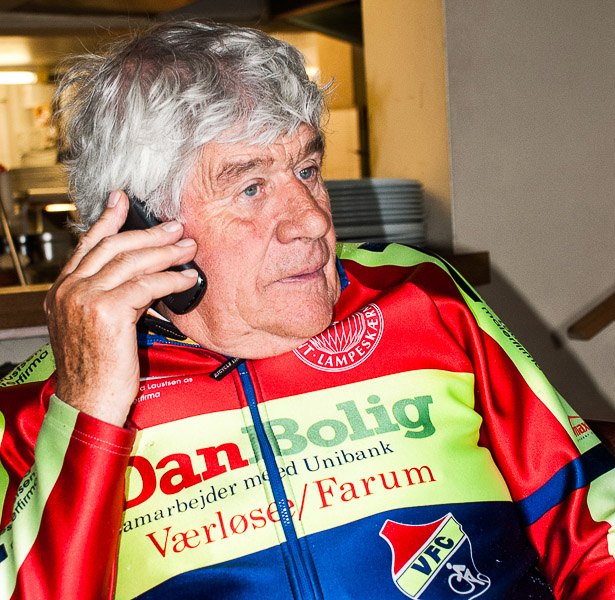
What was the first road invite?
“That would be The Four Days of Sedan, we got an invite on the back of the Charleville ‘cross – I cobbled a team together and it blossomed from there.
“We rode races in France, Belgium, Germany, The Netherlands – they were strong on amateur racing in those countries.”
Which was your favourite area to visit?
“Brittany; we used to go Lanarvily to the Circuit du Mingant with the ‘cross team; they organised the Worlds there in 1982 when Fisera won the amateurs and Liboton won the professional race.
“And we rode the road there – we got an invite to the Mi Aout Bretonne, I took Phil Griffiths and Chris Wreghitt across.”
And did you work full time through all that era?
“Yeah, full time, selling loft conversions – I did that for 40 years.”
Who was the best GB rider you worked with.
“John Atkins was the best but the most talented was Jeff Morris – sadly he was out of the sport at 21, crippled with rheumatoid arthritis.
“He only weighed about seven-and-a-half stones but he was a class act, the best I ever saw.
“But I worked with all the best British guys of the day – John of course, Keith Mernickle, Eric Stone, Barry Davies, Chris Wreghitt…
“But those boys were up against it because all the continentals were on the ‘go-go mixture.’
“What is it they used to say; ‘There are no hills, it does not rain, I feel no pain.”
In your opinion who’s the best cyclo-cross rider, ever?
“Roger De Vlaeminck – not the late Eric.
“He was class, the classiest I’ve ever seen – he didn’t like the mud, mind but his bike handling was the best I’ve ever seen.
“On a course like Koksijde, in the sand, you have to be able to handle your bike – when you go to Belgium, suddenly – it’s reality!”
And who among the UK guys impressed on the road?
“Bill Nickson; I felt he had more potential than Sean Kelly but Kelly was so tough.
“He was the toughest man I’ve ever met – there’d be hailstones bouncing off his head and he wouldn’t even notice.
“There was an amateur ‘Tour of Europe’ centred around Metz and I had a team with Sandy Gilchrist, Bill Nickson, Pete Sanders and Sean Kelly – who won a lot of the stages.”
Which achievements are you most proud of as a manager?
“Roger Hammond won the junior ‘cross Worlds, Robert Dane took silver in them too – and Stuart Marshall won too; he was a very good rider but sadly couldn’t handle the step up to the senior ranks.
“Chris Wreghitt was very talented and turned pro with Bianchi but he saw what was going on and came home; there were guys popping so many pills it was crazy – a lot of guys died young in that era.
It was a free-for-all on the continent with guy’s engines going ‘pop!’ all over the place.
“I was proud too that I got the US team through two Milk Races intact – all six riders – as team manager.
“And the second time we won the stage into Blackpool with Dave Chauner.
“The first time they came over with high expectations – gung-ho to tear the race apart and win but it didn’t work out like that!
“I told them that if they wanted to progress they’d have to come over and base themselves in Europe and that’s what they did.”
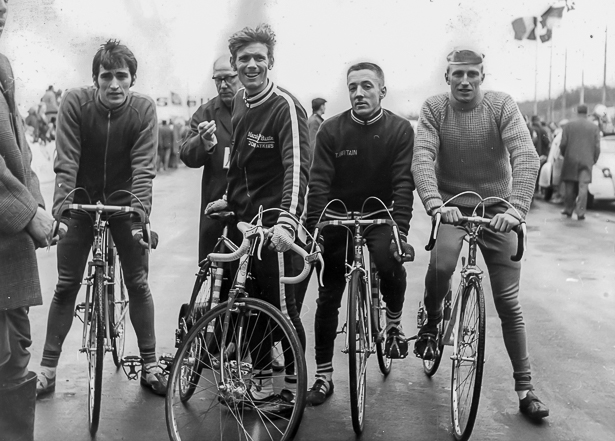
Why did you give it up?
“I was British ‘cross team manager for eight or ten years but one day the committee got us in, Brian Watson – Paul Watson’s dad – and as much as told us we didn’t know what we were doing.
“…and that was an end of it for me.”
We opened by speaking about the Skol Six, did you get along to the 2015 London Six Day?
“No, but I wish I had, we watched it on tele – but it’s hard work getting to that Lee Valley stadium, there’s no parking and you have to walk up from the station.
“We have our tickets for the Worlds in the spring, though.”
And is there anything that stands out from all the time you’ve spent in cycling that you’re most proud of?
“Being Director of the Course at two World Championships – Crystal Palace, London in 1973 and Sutton Park in Birmingham in 1983.
“I must have walked that Crystal Palace circuit one hundred times – and every time I did I picked up more pieces of glass. the glass came from the original Crystal Palace which burned down in 1936 but there are still glass fragments on the site.
“There’s an art to designing a course; you don’t want it stupid – you want it fast and technical.”
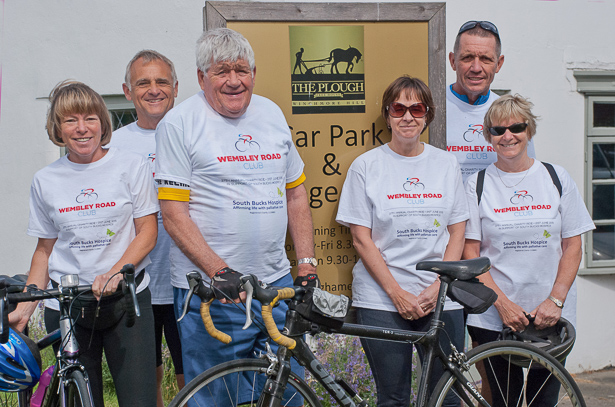
There’s not much you can teach that man about cyclo-cross; but no article about Johnny is complete without an anecdote or two – these come courtesy of former top ‘Cross man, Barry Davies who we interviewed back in January 2015.
“We were due to race in Brittany at the Lanarvily cyclo-cross – Johnny’s ‘team’ car at the time was a huge eight seat American ‘woody’ station wagon.
“When we arrived at Southampton a car full of eight John asked for all the passports to present as we went through customs and it seems he only had seven – Jeff Morris had forgotten his.
“So John devised a plan – two would sit in the front – three in the rear and two in the back whilst Jeff Morris was laid in the foot well behind the front seats and covered with a rug, with the three passengers legs covering him.
“And so he was ‘smuggled’ out of the UK and also back three days later!
“Another necessity on any of John’s trips abroad, as soon as we were on the ferry (whether boat or hovercraft) was to get to the duty free ‘soon as’ and buy up as many bottles of Scotch whisky as we could because at the races people knew that they could buy cross tubulars from the Czech team and whisky from the GB Team , the profit from which paid for the trips abroad.
“From a personal point of view without Johnny Morris my cycling career would never have reached the success it did and he never made a penny from all that work – he did for the love of it.”
With thanks to Barry Davies, Eric Stone and
John McMillan for their help with obtaining images.



